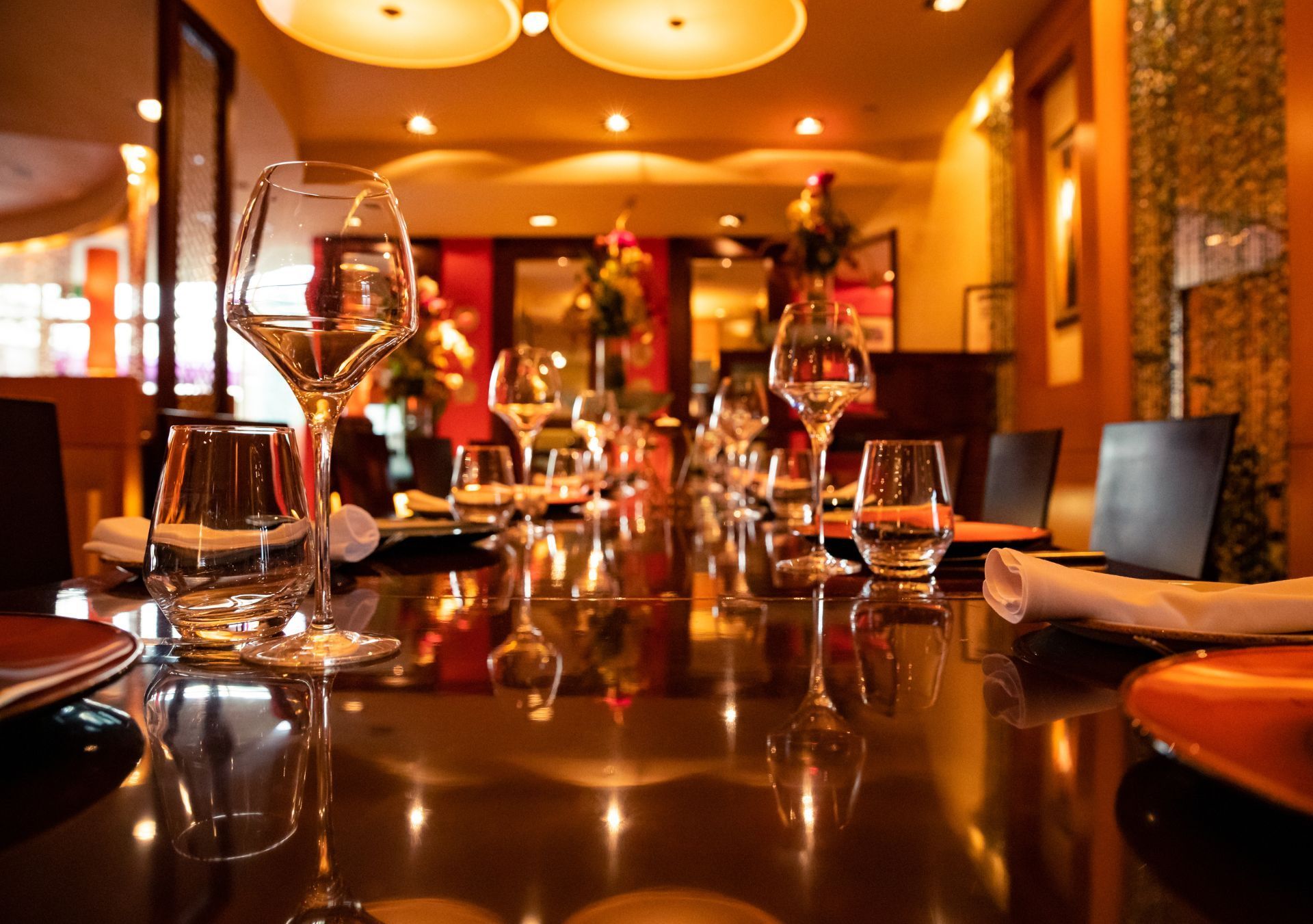
Most Common Business Policies
Index
Contact Us
Operating a restaurant in New York comes with its own set of challenges and responsibilities, particularly when it comes to managing risks. One of the most critical aspects of running a restaurant is ensuring that you have the right insurance coverage. This article will provide you with comprehensive insights into New York restaurant insurance, from understanding its importance to navigating the regulations that govern it.
Understanding the Basics of Restaurant Insurance
Restaurant insurance is designed to protect business owners from potential claims and financial losses associated with running a restaurant. Having the appropriate insurance in place is essential for safeguarding your investment and ensuring the longevity of your establishment.
Importance of Restaurant Insurance
The restaurant industry is fraught with various risks, including accidents, property damage, and employee-related incidents. Restaurant insurance serves as a safety net, allowing owners to focus on running their business without the constant worry of unforeseen events that could result in significant financial strain.
Moreover, having insurance can also enhance your credibility with customers. It demonstrates that you are a responsible business owner, taking precautions to protect both your patrons and your employees. Insurance is also often a requirement for securing leases and loans, a crucial consideration for new establishments. In an industry where reputation is paramount, being insured can reassure customers that they are dining in a safe and well-managed environment, potentially leading to increased patronage and loyalty.
Additionally, the peace of mind that comes with being insured allows restaurant owners to be more innovative and daring in their business strategies. With the right coverage, you can experiment with new menu items, host special events, or even expand your operations without the looming fear of financial ruin should something go wrong. This flexibility can be a significant advantage in a competitive market, where adaptability often leads to success.
Types of Restaurant Insurance
There are several types of insurance policies that restaurant owners should consider. While each restaurant's needs may differ, some fundamental types of coverage include:
- General Liability Insurance: Provides coverage against claims of bodily injury, property damage, and personal injury.
- Property Insurance: Covers damages to the restaurant building and its contents due to events like fire, theft, or natural disasters.
- Workers' Compensation Insurance: Protects employees injured on the job and covers associated medical costs and lost wages.
- Business Interruption Insurance: Offers financial support in case your restaurant is temporarily unable to operate due to a covered event.
In addition to these essential coverages, there are also specialized policies that can be tailored to the unique needs of your establishment. For instance, liquor liability insurance is crucial for restaurants that serve alcohol, as it protects against claims resulting from incidents involving intoxicated patrons. Similarly, food contamination insurance can safeguard against the financial repercussions of foodborne illnesses, which can severely damage a restaurant's reputation and bottom line. By understanding and selecting the right mix of insurance policies, restaurant owners can create a comprehensive safety net that addresses their specific risks and operational challenges.

New York has specific requirements for restaurant insurance that owners must adhere to. Compliance with these regulations is not only essential for legal reasons but also for ensuring the protection of your business assets.
State Requirements for Restaurant Insurance
In New York, it is mandatory for restaurants to have workers' compensation insurance if they have employees. Additionally, most landlords will require proof of general liability and property insurance before permitting you to lease a space.
It's important to consult with a licensed insurance agent familiar with New York's regulations, as they can help you understand your obligations and assist you in obtaining the necessary coverage. These agents can also provide insights into additional types of insurance that may be beneficial for your establishment, such as liquor liability insurance, which is crucial for restaurants that serve alcohol. This type of coverage protects against claims resulting from incidents involving intoxicated patrons, ensuring that your business is safeguarded against potential lawsuits.
Potential Penalties for Non-Compliance
Failing to comply with New York's insurance regulations can lead to serious consequences, including hefty fines and legal action. In some cases, you may also lose your right to operate your restaurant if you do not maintain necessary insurance coverage.
Moreover, non-compliance can leave your restaurant vulnerable to significant financial risks, which can be detrimental to your business in the long run. Therefore, adhering to insurance regulations is not just a legal obligation; it is pivotal for your restaurant's safety and success. Beyond the immediate financial implications, a lack of proper insurance can damage your restaurant's reputation, as customers may be wary of dining at an establishment that appears to be operating outside of legal norms. Additionally, in the event of an accident or incident, the absence of adequate coverage can lead to devastating out-of-pocket expenses that could jeopardize your entire operation. Thus, maintaining compliance is not only about following the law; it’s about fostering trust and security in your business practices.
Key Components of a Comprehensive Restaurant Insurance Policy
Choosing a comprehensive insurance policy means considering the various components that can protect your establishment from numerous risks. Below are key components that should not be overlooked when developing your restaurant's insurance portfolio.
Property Insurance for Restaurants
Property insurance is crucial for any restaurant owner, as it covers damages or losses to your physical assets, including the building, equipment, inventory, and furniture. This type of insurance is especially vital in high-risk areas prone to natural disasters or civil disturbances.
Moreover, property insurance can also cover loss of revenue due to damages suffered, which is essential for maintaining cash flow during challenging times. In addition to natural disasters, property insurance can also protect against theft and vandalism, which can be particularly concerning in urban areas. By ensuring that your property is adequately insured, you can focus on running your business without the constant worry of unforeseen financial burdens.
Liability Insurance for Restaurants
Liability insurance protects your restaurant against lawsuits or claims arising from accidents and injuries occurring on your premises. This could include slip-and-fall incidents, food poisoning claims, and issues related to service rendered.
Having adequate liability coverage can safeguard your business from unexpected legal costs that could otherwise threaten your financial stability. Additionally, liability insurance can also extend to cover incidents that occur off-premises, such as catering events or food delivery services, providing a broader safety net for your operations. This comprehensive coverage ensures that your restaurant can maintain its reputation and continue serving customers without the looming threat of potential lawsuits.
Workers' Compensation Insurance
Workers' compensation insurance is not just a regulatory requirement; it serves to protect the well-being of your employees. Even in a well-managed environment, accidents can occur, leading to injuries that require medical attention or time off work.
This insurance covers medical expenses, rehabilitation costs, and a portion of lost wages, ensuring that your employees feel secure knowing that they are protected while working for you. Furthermore, investing in workers' compensation can foster a positive workplace culture, as employees are more likely to feel valued and supported. This can lead to increased morale and productivity, ultimately benefiting your restaurant's overall performance. Additionally, many insurance providers offer resources and training programs that can help reduce workplace accidents, further enhancing the safety and efficiency of your operations.
How to Choose the Right Insurance Provider
Selecting the right insurance provider is a critical step for any restaurant owner. A reliable provider will understand your specific needs and can tailor a policy that fits your unique situation.
Evaluating Insurance Providers
When evaluating potential insurance providers, consider factors such as their financial stability, customer service reputation, and the types of coverage they offer. Researching reviews and ratings can give you insights into their reliability. Additionally, it's beneficial to look into the provider's history and experience in the industry. A well-established provider with a track record of serving the restaurant sector can offer invaluable insights and support.
It is also advisable to seek providers that specialize in restaurant insurance, as they will possess the nuanced knowledge required to appropriately assess your needs and risks. These specialists often understand the unique challenges faced by restaurants, such as food spoilage, equipment breakdown, and liability issues stemming from customer interactions. Their expertise can be a significant advantage when it comes to crafting a comprehensive insurance plan that adequately protects your business.
Questions to Ask Potential Providers
When interviewing insurance providers, consider asking the following questions:
- What types of restaurant insurance do you offer, and can you customize a policy for my needs?
- What is the claims process like, and how long does it typically take for claims to be processed?
- Are there any specific exclusions in the policies I should be aware of?
- What discounts or packages are available for restaurants?
Moreover, inquire about their experience with claims in the restaurant industry. Understanding how they handle claims specific to food service can provide peace of mind. Ask if they have case studies or testimonials from other restaurant clients that illustrate their responsiveness and support during challenging situations. This information can be crucial in determining whether a provider is truly invested in the welfare of your business and its unique requirements.
Lastly, consider the level of communication and support you can expect from the provider. A dedicated account manager or a team that is easily accessible can make a significant difference, especially during times of crisis. Establishing a good rapport with your insurance provider can lead to a more personalized service, ensuring that your needs are met promptly and effectively.
Cost of Restaurant Insurance in New York
The cost of restaurant insurance can vary significantly based on a number of factors, making it crucial for owners to understand the elements that contribute to pricing.
Factors Influencing Insurance Costs
Several factors can influence the cost of restaurant insurance, including:
- The size and location of your restaurant
- Your restaurant's claims history
- The types of services and menu items offered
- Employee number and roles
Understanding these factors will allow you to better assess your insurance needs and budget accordingly. For instance, a restaurant located in a busy urban area may face higher premiums due to increased foot traffic and the potential for accidents, while a smaller, family-run establishment in a quieter neighborhood might enjoy lower rates. Additionally, the nature of the cuisine offered can also play a role; establishments serving alcohol or operating late-night hours may be subject to higher risks, thus affecting their insurance costs.
Tips for Reducing Insurance Premiums
To keep insurance costs manageable, consider implementing safety measures such as employee training programs, maintaining a safe environment, and investing in security systems. These proactive steps can lead to lower premiums. For example, training staff on proper food handling and emergency procedures not only enhances safety but can also demonstrate to insurers that you are committed to risk management, potentially leading to discounts.
Additionally, regularly reviewing your insurance policy and shopping around for better rates can help you minimize costs without sacrificing coverage. It’s also beneficial to engage with an experienced insurance broker who specializes in restaurant insurance; they can provide insights into the best policies available and help you navigate the complexities of coverage options. Furthermore, bundling different types of insurance, such as general liability and property insurance, can often yield significant savings, making it a smart strategy for restaurant owners looking to optimize their insurance expenditures.
Managing Risks in the Restaurant Business
Effective risk management is paramount to running a successful restaurant. Identifying potential risks and mitigating them can save you both money and stress in the long run.
Common Risks in the Restaurant Industry
Common risks include employee injuries, foodborne illnesses, property damage, and equipment malfunction. Each of these risks can lead to significant financial liability if not effectively managed.
Understanding the specific risks that are pertinent to your restaurant type is essential for protecting your business and maintaining your operations smoothly. For instance, fine dining establishments may face unique challenges such as higher expectations for food presentation and service, whereas fast-casual restaurants might deal with a higher volume of customers, increasing the likelihood of accidents and food safety breaches. By tailoring your risk assessment to the nuances of your specific restaurant model, you can better prepare for potential pitfalls.
Risk Management Strategies for Restaurants
Implementing risk management strategies can drastically reduce the potential for costly incidents. Strategies include conducting regular safety training for employees, installing safety equipment, and performing routine maintenance on kitchen equipment.
Additionally, creating comprehensive policies regarding food safety, employee conduct, and emergency procedures can pave the way for a safer workplace. Regularly reviewing and updating these policies ensures that they remain relevant and effective in addressing new challenges as they arise. Moreover, fostering a culture of safety among your staff encourages them to take ownership of their roles in preventing accidents and maintaining high standards. This proactive approach not only enhances the overall safety of your establishment but also boosts employee morale and customer satisfaction, as patrons are more likely to return to a restaurant where they feel safe and valued.

Frequently Asked Questions about Restaurant Insurance
As a restaurant owner, you may have several questions regarding insurance. This section will address some of the most frequently asked questions about restaurant insurance.
What Does Restaurant Insurance Typically Cover?
Restaurant insurance generally covers a variety of areas, including general liability, property damage, worker injuries, and business interruption. It's essential to tailor your policy to meet your restaurant's specific needs to ensure comprehensive coverage.
Is Restaurant Insurance Mandatory in New York?
While not every type of restaurant insurance is mandatory, certain types, such as workers' compensation insurance, are required by law in New York. Additionally, landlords often require proof of insurance before allowing you to lease a commercial space.
How Often Should I Review My Restaurant Insurance Policy?
It is advisable to review your restaurant insurance policy at least annually, or whenever significant changes occur within your business, such as renovations, changes in staff, or shifts in services offered.
Regular reviews will enable you to adjust your coverage as necessary, ensuring that you remain protected as your restaurant evolves.
In conclusion, understanding and securing the appropriate insurance for your New York restaurant is essential for mitigating risks and ensuring your business’s success. By familiarizing yourself with the basics of restaurant insurance, navigating state regulations, and actively managing risks, you can make informed decisions that will lead to a successful restaurant operation.
